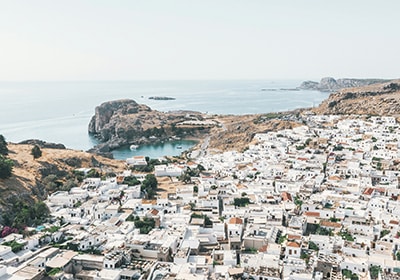Despite headlines suggesting otherwise, the Golden Visa industry is far from fading. It is projected to exceed $100 billion, according to a new Wealth Briefing report. What we’re seeing is not a decline, but rather a transformation.
Golden Visa programs, particularly in Europe, are evolving. No longer are they just pathways for passively funneling wealth. They’re becoming impact-orientated tools for innovation, job creation, and sustainable national development. The Golden Visa era is well and truly underway.
However, these programs are facing increasing scrutiny. Greece responded to critique by restructuring its Golden Visa program to include tiered real estate thresholds: €800,000 in high-demand areas like Athens and Thessaloniki, €400,000 in other regions, and €250,000 for certain conversions or restorations.
Spain, on the other hand, completely ended its Golden Visa program in April 2025 amid concerns about housing market inflation. This is despite research on the housing crisis by the Global Intelligence Unit showing that these fears were unfounded.
Malta’s Citizenship by Investment program was also halted following a ruling by the European Court of Justice, prompting a restructuring process.
Laura Madrid, Research Lead at the Global Intelligence Unit, explains: “Governments are moving away from merely investing capital to fostering a strong connection between the investor and host country.”
She continues, “This is evident in the programs that are tailoring their investment options to include routes toward creating jobs, funding businesses with innovative ideas, and promoting environmental sustainability. Applicants are no longer just investors; they’re active contributors to the progress of countries.”
Combined, these reforms are leading the way for a broader EU-driven shift toward Golden Visa programs that deliver tangible results for host countries and their citizens
Portugal’s 2023 Golden Visa reforms marked a turning point in investment migration. Real estate was removed as a qualifying route, redirecting capital toward sectors that are more aligned with national priorities.
Applicants can now invest in venture capital or private equity funds supporting Portuguese startups, green infrastructure, and clean energy or donate to cultural heritage preservation. “There’s a clear rise in impact-conscious investing, especially among younger applicants,” says Madrid.
Lourenço Alvares, Global Citizen Solutions’ Investment and Funds Specialist, adds: “We’re seeing strong demand for purpose-led investments in areas like renewable energy, biotech, and Agri-Tech where Portugal already has momentum.”
The shift is backed by data: venture capital investment in Portugal rose 120% from 2020 to 2023, outpacing the EU average. Golden Visa-eligible funds now account for 30% of all permits issued. Meanwhile, €6.5 billion invested previously in real estate generated just 23 documented jobs, underscoring the need for smarter, more productive capital allocation.
Portugal’s updated approach shows how investment migration can fuel innovation and sustainability when strategically designed.
This strategy encourages investors to revitalize currently neglected areas, restore heritage sites, and boost local economies.
Some developers are even partnering with municipalities to rebuild town centers, expand tourism, and offer affordable housing. This will eventually lead to Portuguese citizens seeing improvements in their environment because of these investments.
The impact is clear: by 2023, the program had funneled over €4 billion into the Greek economy, with more than 2,300 residence permits issued. This targeted model helps ease pressure on inflated markets while directing funds to areas that need rejuvenation.
Following the European Court of Justice ruling in April 2025, Malta is now in the process of reforming its Maltese Exceptional Investor Naturalisation (MEIN) program, which is the country’s version of a citizenship by investment scheme.
While the citizenship route may have been paused until further notice, Malta’s Permanent Residence Programme (MPRP) still offers investors the option to channel funds into national development priorities related to education, healthcare, and infrastructure.
Madrid says “In the Residency by Investment context, Malta’s MPRP program is a highlight. This is thanks to its in-depth due diligence requirements. Their approach is helping to attract applicants that demonstrate a commitment to the county of Malta. This is part of a broader trend of creating a genuine link between investors and the country they invest in.”
In Portugal, investors can contribute to cultural heritage or commit €500,000 to green-focused venture capital funds. Greece allows investment from €250,000 in urban regeneration or heritage projects, while Malta channels contributions into national development and social initiatives.
Further afield, Panama and Colombia offer investor visas tied to reforestation and sustainability, appealing to those looking to support climate resilience while securing residency.
These programs not only help applicants meet visa criteria but assist in building a more sustainable and inclusive future.
To stay relevant, Golden Visa programs must move beyond simply attracting capital. They need to align with national goals by supporting housing, sustainability, innovation, and healthcare.
Transparency is also key, which is done by tracking and reporting on the impact of funds to help build trust. At the same time, programs should remain flexible for a wider range of investors while upholding ethical standards.
“Today’s schemes are designed with dual purpose,” says Madrid. “They offer global mobility and security for investors, while delivering economic and social value to host countries. We’re also seeing tighter due diligence and stricter eligibility. All signs that governments are serious about program integrity.”
Golden Visas won’t be going away any time soon as can be seen in new or updated programs popping up such as New Zealand’s Active Investor Plus Visa.
For investors seeking the dual combination of mobility and conscious investment, the investment migration industry offers a compelling proposition: a chance to give back while moving forward.



